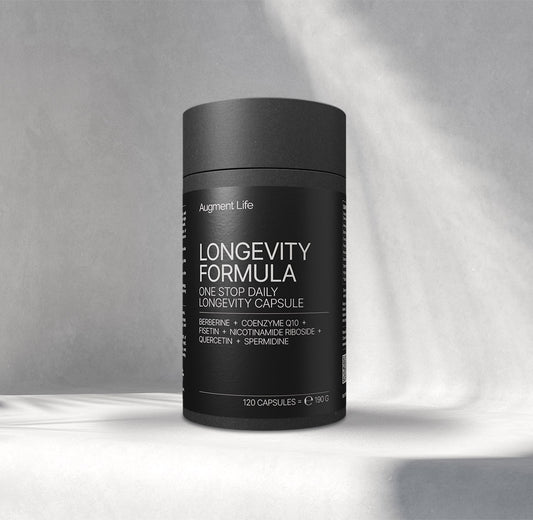Ora che hai scoperto i benefici dell'estratto di tè verde nel nostro articolo “Perché Dovresti Assumere l'Estratto di Tè Verde? ”, potresti essere pronto a provarlo e a vedere come funziona su di te. Il tuo prossimo dubbio dunque probabilmente sarà quanto GTE dovresti assumere al giorno.
Qui ti forniremo una guida scientifica su quanto ne dovresti assumere. Continua a leggere per approfondire!
Estratto di Tè Verde - Dosaggio consigliato
I prodotti a base di tè verde sono in genere standardizzati in base alla quantità di polifenoli o antiossidanti che forniscono.1
Sulla base di revisioni sistematiche del consumo di GTE negli adulti, si è scoperto che il dosaggio raccomandato di estratto di tè verde è compreso tra 250 e 500 mg al giorno. Questa quantità può essere ottenuta da 3-5 tazze di tè verde, o circa 1,2 litri.2-3
Tuttavia, è importante notare che questi studi sono stati condotti su adulti sani. Le persone che assumono dosi elevate di catechine del tè verde dovrebbero monitorare i loro enzimi epatici per evitare danni al fegato o insufficienza epatica acuta.4-5
Nuova legislazione della UE sull'assunzione di GTE
La nuova legislazione UE limita la quantità di estratto di tè verde contenente (-)-epigallocatechina-3-gallato (EGCG) che può essere presente negli alimenti e stabilisce nuovi requisiti di etichettatura.
Nel parere scientifico del 2018 l'Autorità europea per la sicurezza alimentare (EFSA) ha concluso che il consumo di EGCG superiore a 800 milligrammi al giorno (mg/giorno) può aumentare la probabilità di danni al fegato se assunto come integratore alimentare.
La determinazione dell’EFSA si basava su studi che rivelavano un aumento statisticamente significativo delle transaminasi sieriche, indicative di danno epatico, nei soggetti a cui erano stati somministrati integratori di EGCG.
Conclusioni
La dose raccomandata di estratto di tè verde è di 250-500 mg al giorno ed è meglio assumerla con il cibo. Quantità superiori possono essere tossiche. È sempre bene parlare con il tuo medico in modo che possa aiutarti a definire la quantità appropriata di estratto di tè verde giusta per te.
References:
- TÈ VERDE: Panoramica, usi, effetti collaterali, precauzioni, interazioni, dosaggio e recensioni. (n.d.). https://www.webmd.com/vitamins/ai/ingredientmono-960/green-tea.
- Hu, J., Webster, D., Cao, J., & Shao, A. (2018). La sicurezza del consumo di tè verde e dell'estratto di tè verde negli adulti - Risultati di una revisione sistematica. Regulatory toxicology and pharmacology : RTP, 95, 412–433. https://doi.org/10.1016/j.yrtph.2018.03.019.
- Chow, H. H., Hakim, I. A., Vining, D. R., Crowell, J. A., Ranger-Moore, J., Chew, W. M., Celaya, C. A., Rodney, S. R., Hara, Y., & Alberts, D. S. (2005). Effetti delle condizioni di dosaggio sulla biodisponibilità orale delle catechine del tè verde dopo la somministrazione di una dose singola di Polifenone E in individui sani. Clinical cancer research : an official journal of the American Association for Cancer Research, 11(12), 4627–4633. https://doi.org/10.1158/1078-0432.CCR-04-2549.
- Patel, S. S., Beer, S., Kearney, D. L., Phillips, G., & Carter, B. A. (2013). Estratto di tè verde: una potenziale causa di insufficienza epatica acuta. World journal of gastroenterology, 19(31), 5174–5177. https://doi.org/10.3748/wjg.v19.i31.5174.
- Hu, J., Webster, D., Cao, J., & Shao, A. (2018). La sicurezza del consumo di tè verde e dell'estratto di tè verde negli adulti - Risultati di una revisione sistematica. Regulatory toxicology and pharmacology : RTP, 95, 412–433. https://doi.org/10.1016/j.yrtph.2018.03.019.
- European Food Safety Authority. (2018). Parere scientifico sulla sicurezza delle catechine del tè verde. European Food Safety Authority. https://www.efsa.europa.eu/en/efsajournal/pub/52





